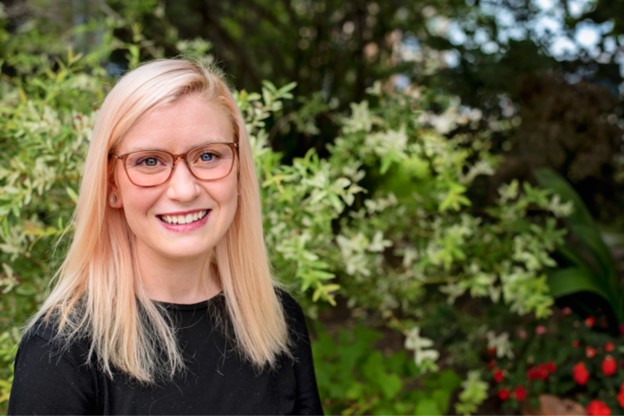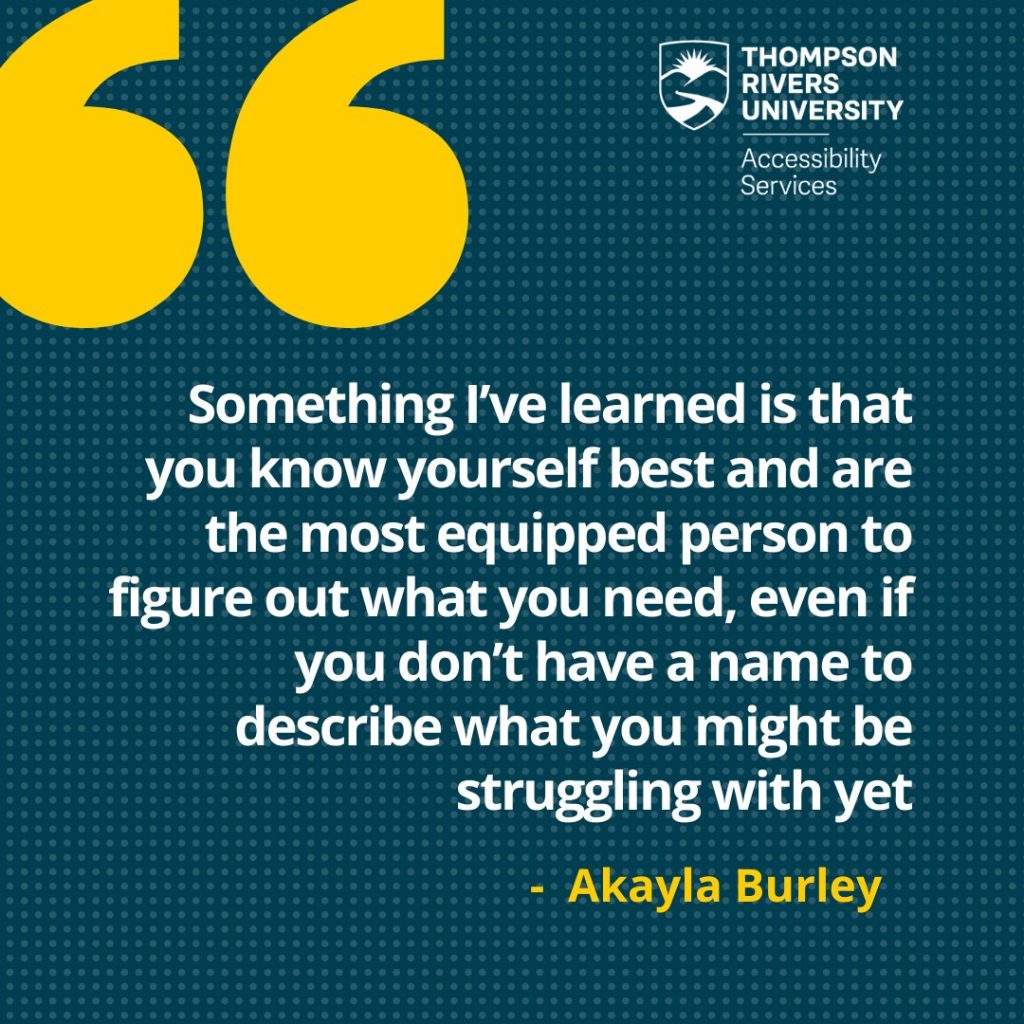Following an upbringing that was riddled with endless hospital visits, an inconsistent home life, constant medical uncertainty, and the anguish of stigma that made her feel like an outcast among her peers, Akayla Burley’s years of hardship taught her to know herself, trust herself, accept herself and, ultimately, be herself—unapologetically.

The pursuit of self-advocacy
Burley’s ability to self-advocate did not come quickly. Over the years, her various health conditions and diagnoses have changed drastically, resulting in her self-advocacy being an ongoing and fluid process.
In elementary school, she was diagnosed with a migraine disorder. However, the numerous other afflictions she was coping with were largely unidentified, including obsessive-compulsive disorder, Ehlers-Danlos Syndrome, attention deficit hyperactivity disorder, depression, anxiety and autism. Because autism in females was not well understood at the time, Burley’s testing results were termed as “an unidentified processing disorder.”
She struggled greatly in school, especially with processing auditory information, and faced discrimination as a result. Her well-being was greatly impacted by her health problems and associated stigma, which led to her committing self-harm and attempting suicide at a young age.
“There was a lot of bullying when I was younger, specifically because of being removed from classes due to my disability. The worst part was that I couldn’t tell them why because no one could figure out what was wrong with me.”
In high school, Burley experienced a whole new set of obstacles—an eating disorder, chronic fatigue syndrome, undiagnosed gastrointestinal issues, body dysmorphic disorder, osteoarthritis and complex post-traumatic stress disorder—due to the enormous impact of the barrage of medical tests from her childhood. She was also diagnosed with Ehlers-Danlos Syndrome, which affects connective tissues in the skin, bones, blood vessels and organs. After beginning to receive diagnoses of her mental health conditions, Burley felt she was no longer seen as a reliable source of information on her own body, which created a barrier to her ability to advocate for herself.
The strain from living with various comorbidities caused Burley’s mental and physical health to further unravel. At her lowest point, her disabilities and home-life stressors led to a period of homelessness after high school. When she was 19, she moved into her place with a close friend and some roommates after spending over a year living in youth shelters.
“I was absolutely terrified. I didn’t know how I was going to be a part of a world that felt like it just wasn’t designed for me,” she said.
It wasn’t until she was already studying at TRU that she was finally able to name the unidentified barrier whose mysterious presence had haunted her childhood and academic life: autism.
“Receiving a diagnosis and connecting all those puzzle pieces was the most helpful for me. It was also much easier to access the proper accommodations; when I didn’t know what was going on, I didn’t know what I needed.”
This new understanding allowed Burley to take a big step toward a healthy, productive, fruitful future.
Accessing accommodations
At TRU, Burley’s grades transformed from C+s to As, and she attributes this change largely to Accessibility Services (AS). “If it weren’t for Accessibility Services, I wouldn’t have been able to do what I did,” she said, then elaborated on how the department helped her.
“Once I had gotten through the initial documentation and paperwork process, it was so easy. Keeping in touch with Accessibility Services was a breeze and it was simple to change or add any accommodations I needed, which was super important for me as my conditions were and still are always changing.”
Extended testing time, stimulus-reduced testing environments, and priority seating to ensure she can see her instructors lip-read are some of the accommodations that Burley accesses. She sometimes uses an ambulatory wheelchair to help with her chronic fatigue and physical conditions. She is finishing a bachelor’s degree and working part-time as a care aide—she received her certification from TRU in 2017, and she counts it as one of her biggest accomplishments.
Stigma and advice
Although Burley was nervous that accessing accommodations would result in her continuing to feel like the “freak” among her peers, the kindness of her AS advisor eased her nerves tremendously.
She feels a lot more comfortable with herself since receiving her autism diagnosis and racking up successes at TRU. However, there are still some things that make her feel stigmatized.
“People make a lot of assumptions based on others with disabilities who they know. Folks don’t necessarily take the time to get to know you, or they’ll get to know you on a surface level because they think they are doing you a favour—and that’s one of the worst things I have experienced.”

Burley said she sees a discrepancy in the way people talk to her when they know she has a disability versus when they don’t. She would like people to better understand disability etiquette, that simply asking what someone needs is enough, and there is no need to pity someone as we all have our own obstacles.
“I wish people understood that wheelchairs and other mobility aides are not prisons; they are tools designed to help people live their lives.”
Burley also sheds light on the wisdom she’s gained in her experience.
“Something I’ve learned is that you know yourself best and are the most equipped person to figure out what you need, even if you don’t have a name to describe what you might be struggling with yet.”
Learn more about Akayla Burley’s story here.

